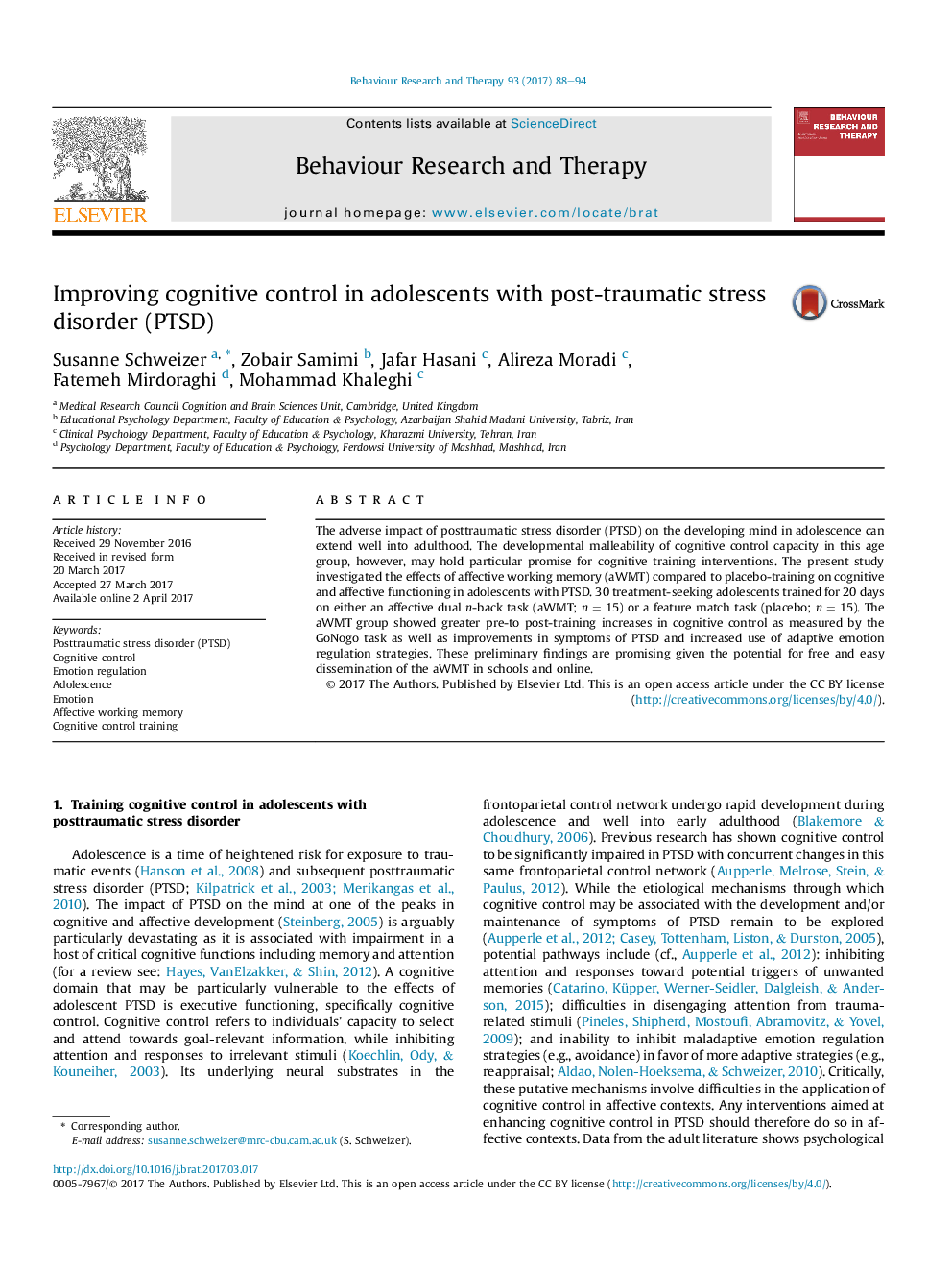| Article ID | Journal | Published Year | Pages | File Type |
|---|---|---|---|---|
| 5038200 | Behaviour Research and Therapy | 2017 | 7 Pages |
â¢Cognitive control can be improved in adolescents with PTSD.â¢Symptoms of PTSD are reduced following affective working memory training.â¢Self-reported use of adaptive emotion regulation strategies can be increased.
The adverse impact of posttraumatic stress disorder (PTSD) on the developing mind in adolescence can extend well into adulthood. The developmental malleability of cognitive control capacity in this age group, however, may hold particular promise for cognitive training interventions. The present study investigated the effects of affective working memory (aWMT) compared to placebo-training on cognitive and affective functioning in adolescents with PTSD. 30 treatment-seeking adolescents trained for 20 days on either an affective dual n-back task (aWMT; n = 15) or a feature match task (placebo; n = 15). The aWMT group showed greater pre-to post-training increases in cognitive control as measured by the GoNogo task as well as improvements in symptoms of PTSD and increased use of adaptive emotion regulation strategies. These preliminary findings are promising given the potential for free and easy dissemination of the aWMT in schools and online.
